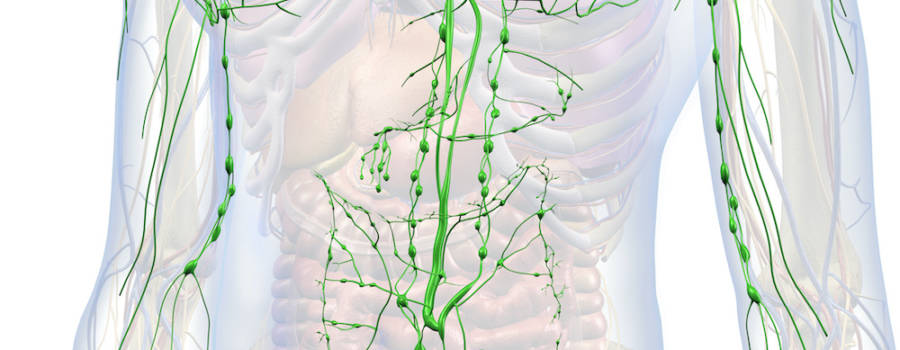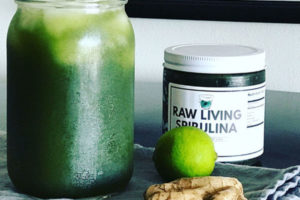The blue-green algae Spirulina, commonly referred to as a superfood due to its high concentration of vitamins, minerals, antioxidants, and proteins, is an effective Immunomodulator (an agent that can dramatically affect the behavior of our immune cells.)
This blue-green alga is a freshwater plant that is now one of history’s most researched and talked about superfoods.
So, let’s take a closer look at Raw Living Spirulina. Why do you want to consider adding it to your routine, and how can it impact your immune system?
Raw Living Spirulina — King of the Superfood World
Spirulina has incredible nutritional value as it has been described as the most nutrient-dense food on earth, meaning that it’s packed with vital nutrients, many not found in our everyday common foods. Beyond its impressive vitamin, mineral, and antioxidant content, Spirulina is a complete protein. It has all the essential amino acids our body needs to rebuild new cells and repair damaged ones.
Spirulina is an excellent source of vitamin B1, which we need for energy, brain health, and digesting fats and proteins.
It’s also a phenomenal source of absorbable and digestive-friendly iron (non-heme) and has about 25 times more calcium than milk.
Spirulina gets its green color from chlorophyll, the key chemical for plants to make energy from sunlight. Chlorophyll boosts red blood cells, fights cancer, and helps slow down the signs of aging. Chlorophyll is an excellent source of vitamins A, C, E, and K, as well as minerals like potassium magnesium, and fatty acids like GLA, which are challenging to find in food sources. GLA is a potent anti-inflammatory and, along with the omega-3 fatty acids in Spirulina, can lower cholesterol, blood pressure, and the risk of stroke.
Spirulina isn’t just some ancient remedy from a thousand-year-old book. It has got modern science behind it. To date, over 2000 peer-reviewed scientific articles have evaluated its health benefits. One of the top reasons to consume Spirulina is that it is known as an immune booster due to its high chlorophyll, β-Carotene, and phycocyanin content.
Immune System
The immune system is our friend. It protects our body from infection. Give it your full support, and there will be perks as with any friend.
The immune system is an interactive network of organs, cells, and proteins that protect the body from viruses, bacteria, or foreign substances. The main tasks of the body’s immune system are:
- To neutralize and remove pathogens like bacteria, viruses, parasites, or fungi that enter the body,
- To recognize and neutralize harmful substances from the environment, and
- To fight against disease-causing changes in the body, such as cancer cells.
Without an immune system, we would have no way to fight harmful invaders that enter our bodies from the outside or harmful changes that occur inside our bodies.
Many different things can activate the immune system the body doesn’t recognize as its own. These are called antigens. Examples of antigens include the proteins on the surfaces of bacteria, fungi, parasites, and viruses. When these antigens attach to special receptors on the immune cells (immune system cells), a whole series of processes are triggered in the body. Once the body has come into contact with a disease-causing germ for the first time, it usually stores information about the embryo and how to fight it. Then, if it comes into contact with the germ again, it recognizes it immediately and can start fighting it faster.
In other words, a robust immune system will help your body heal fast and protect and prevent your body from getting ill.
Raw Living Spirulina as Immunomodulator
Many preclinical and clinical studies suggest that Raw Living Spirulina (its primary active compound, phycocyanin) has immunomodulatory activities. We know that phycocyanin and β-carotene are essential active ingredients in Raw Living Spirulina and contribute to their immunomodulatory properties.
Dysfunctional immunity causes many human diseases, including atherosclerosis, cardiac hypertrophy, heart failure, and hypertension. Thus, the immunomodulatory activities of Raw Living Spirulina may play an essential role in human health.
According to Qureshi and Ali 1996; Mao et al. 2000; Gad et al. 2011; Khan et al. 2005, studies on animals show that Spirulina is a potent immune system stimulator.
In another study done on humans by Mao et al. (2000), Spirulina had marked immunomodulatory effects. They showed a significant increase in IL-1β, IL-4, and interferon (IFN)-γ production by PBMCs by almost 2.0, 3.3, and 13.6 times basal levels. Together, increases in these cytokines suggest that Spirulina is a strong proponent for protecting against intracellular pathogens and parasites and can potentially increase the expression of agents that stimulate inflammation, which also helps to protect the body against infectious and potentially harmful micro-organisms.
An in vivo study showed that when mice suffering from systemic candidiasis and breast cancer were treated with Spirulina for three days, the expression of genes encoding IL-4 and IL-10 was significantly reduced, whereas that of genes encoding IL-17, TNF-α, and IFN-γ was markedly increased (Shokri et al. 2014).
In another study, Chen et al. (2014) examined purified phycocyanin from Spirulina using power plant flue gas. The immunomodulatory activity of the purified molecule was then analyzed using the murine macrophage cell line, J774A. They found that phycocyanin increased the secretion of TNF-α, IL-1β, and IL-6 by J774A cells, along with the expression of IL-1β and COX-2 proteins. In addition, both Spirulina and phycocyanin inhibited the expression of inflammation-related genes by lipopolysaccharide (LPS)-stimulated BV-2 microglial cells.
Spirulina also affects the immune response in healthy, elderly male and female subjects. Spirulina supplementation resulted in a significant rise in plasma IL-2 concentrations in both male and female subjects and a marked reduction in IL-6 concentrations (Park et al. 2008.)
Anemia and immunosenescence are common in older subjects. A working group led by Dr. Gershwin (Selmi et al. 2011) suspected Spirulina might ameliorate anemia and immunosenescence in senior citizens. Therefore, they treated volunteers (>50 years old) with Spirulina for 12 weeks. They found that the corpuscular hemoglobin levels had increased in both sexes after this time. Moreover, most subjects showed an increased indoleamine 2,3-dioxygenase enzyme activity, a sign of immune function, and increased white blood cell count after 6 and 12 weeks of Spirulina supplementation, respectively. Thus, Spirulina appears to alleviate anemia and immunosenescence in older subjects.
Data from the studies reviewed in this section show that Spirulina and its active compound, phycocyanin, show immunomodulatory activity. Both stimulate the production of antibodies and up-or downregulate the expression of genes encoding IL-1β, IL-2, IL-4, IL-6, IL-10, IFN-γ, IL-17, and TNF-α. In addition, it may be that the reported tumoricidal effects of Spirulina are mediated indirectly via increased production of TNF-α and IFN-γ. Although Spirulina appears to ameliorate immunosenescence in older subjects, further human studies with larger cohorts are needed to support this conclusion.
To evaluate the effects of Spirulina on the immune system, the UC Davis immunologists collected blood samples from 12 healthy volunteers, separating the peripheral blood mononuclear cells. These cells, which include macrophages, monocytes, and lymphocytes, including B and T cells, work as a team to mount an immune response. “People have used Spirulina throughout history says Judy Van de Water, associate professor of rheumatology, allergy, and clinical immunology at UC Davis. “Through research, we are learning exactly how this superfood improves immune system function and how it is a beneficial addition to our diet.”
Woon et al. 2013 investigated the Spirulina that was grown in deep seawater. This study examined the potential of deep-sea water to enhance Spirulina’s anticancer and immunomodulatory activities. Finally, Spirulina grown in deep seawater resulted in high anticancer activities because of the significantly high β-Carotene and ascorbic acid contents.
Raw Living Spirulina
We are often asked what kind of water we use to grow Raw Living Spirulina. Our water source originates from the northern Floridian Aquifer, which is sandwiched between the surface aquifer and the ultra-deepwater by different subterranean layers and accessed from between 400 and 800 feet below the surface. It naturally rises to the surface on the farm under high pressure. It is also highly mineralized, making it ideal for Spirulina and its subsequent nutritional value. Vero Beach is known to have some of the best water in Florida, which is another reason why we chose this location. Our water also does not contain chlorine, fluoride, or harsh chemicals found in municipal water systems.
In conclusion, research continues to uncover more and more potential benefits of Spirulina. Studies have shown that adding Spirulina to your routine could strengthen your immune system.
In today’s world, where new viruses like Corona are constantly bombarding us, it is now vital that we protect ourselves by building a more robust immune system. The immune system is our military, which needs constant support. Raw Living Spirulina can be one of the most essential natural weapons to fight against such foreign invaders.
https://scienceblog.com/514404/nac-spirulina-other-nutraceuticals-may-play-role-on-coronavirus-treatment/
https://www.sciencedirect.com/science/article/pii/S0033062020300372






Recent Comments